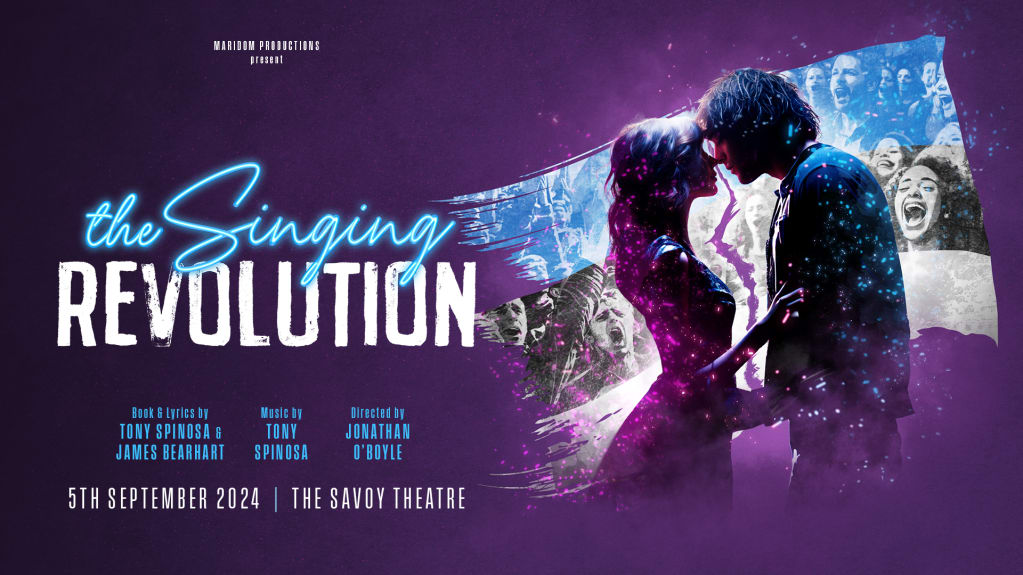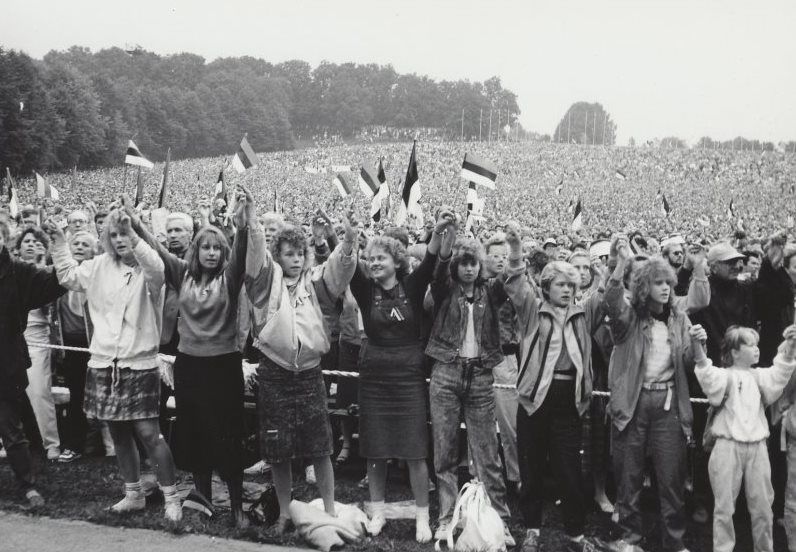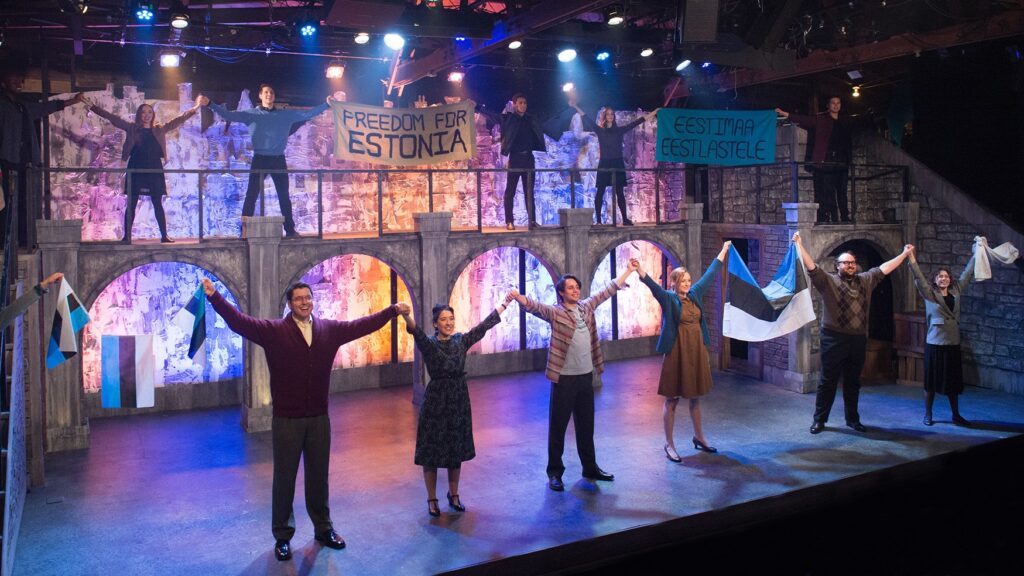“The Singing Revolution”, a musical about Estonia’s peaceful independence movement, will be presented in a West End showcase at London’s prestigious Savoy Theatre on 5 September.
“The Singing Revolution” is a love story inspired by the incredible events of the peaceful Estonian independence movement of the late 1980s and early 1990s, when a nation sang its way out of Soviet occupation. In September 1988, a staggering 300,000 Estonians gathered at the Tallinn Song Festival grounds to sing songs of protest and demand freedom from Soviet rule.
It was the beginning of the end for the dissolution of the Soviet Union and a significant moment in the end of the Cold War, but it’s also a moment relatively unknown to much of the world. American playwright and director Tony Spinosa hopes to change that with his production, which premiered at the Broadwater Theatre in Los Angeles in January 2022.
The London production is co-written by James Bearhart and directed by Jonathan O’Boyle – and, according to the producers, “reminds us all that our voices, united in harmony, have the power to shape our future and change the world”.

The West End showcase on 5 September is for UK theatre producers, artistic directors and investors – but tickets are available to the public. “The intention is that one of the theatres in and around London will be interested in producing a full run of the show in their next season. We believe there is a future for this important and timely story and I look forward to exploring all the possibilities that arise after this presentation,” Spinosa told Estonian World.
Introduced to Estonian history by accident
“I wrote this musical to educate and enlighten the audience about Estonian heritage and culture,” Spinosa told Estonian World in 2022, adding that “I found that very few Americans know about this part of the world”.
It’s worth noting – and it’s something of a testament to Spinosa’s point – that his own introduction to Estonia’s history and its Singing Revolution happened entirely by accident.
“I was inspired by this story when I was on a cruise in the Baltic in 2014. We were diverted from a stop in St Petersburg and instead docked in Tallinn. Our tour guide took us to all the sites in the charming old town of Tallinn, and then she took us to the Song Festival grounds and began to explain the events of the Singing Revolution”.

Like most who first hear of the Estonians’ unprecedented peaceful protest, Spinosa was “immediately fascinated by the fact that the Estonians used the power of song as a shield against the Soviets”, and as he delved deeper into the story, he found it to be “the quintessential example of the power of peaceful resistance, and a story I wanted to share with the world”.
The power of the country’s sound heritage
Since that first visit in 2014, Spinosa has returned to Estonia many times. But it was during a visit in 2019, when he was able to experience Laulupidu – Estonia’s renowned choral festival – that the sheer power of the country’s sonic legacy crystallised in his mind. “I had heard about the song festival, but to experience it for myself was a weekend I will never forget. To hear 37,000 voices singing as one is something I will never forget”.
This experience, coupled with a series of interviews he conducted with a number of people who led the revolution, such as Jüri Joost, Heinz Valk, Trivimi Velliste and Marju Lauristin, provided Spinosa with a wealth of source material for his production. He also credits “The Singing Revolution”, a 2006 documentary by American filmmakers James Tusty and Maureen Castle Tusty, with providing “a clear overview of the history of Estonia and the events that took place during the revolution”.

He went on to say, “It is hard to believe that before my first visit to Tallinn, Estonia in 2014, I knew very little about the country and its culture. Since then, I have developed a deep appreciation for the Estonian people as I have learned about their passion, integrity and perseverance”.
“To see this small country achieve its re-independence from the Soviet Union through the power of peaceful protest is a beautiful example to the world that violence is not always the answer. Estonians have shown the world that we can achieve great things if we stay true to our beliefs and act out of kindness. The Estonians’ love of music and singing is a cultural pastime, and to learn how they used it as a ‘shield’ against Soviet attacks still inspires me today,” said Spinosa.

